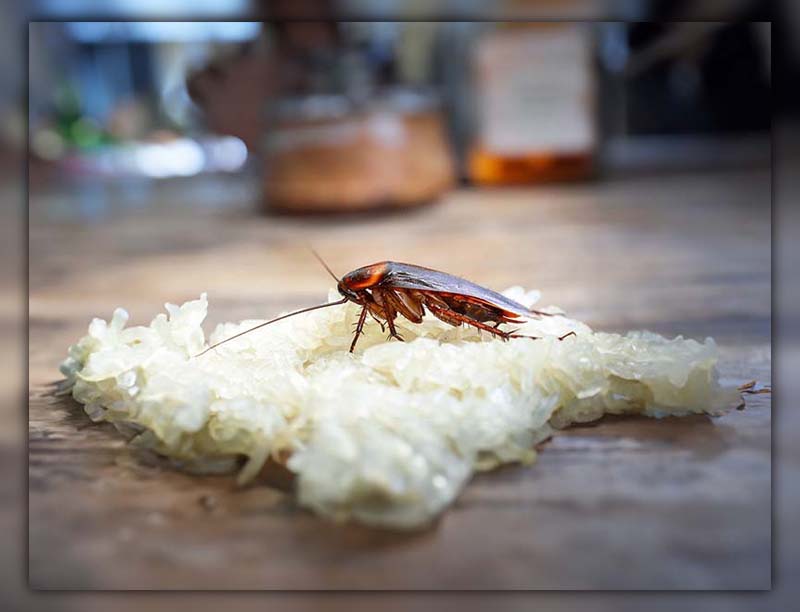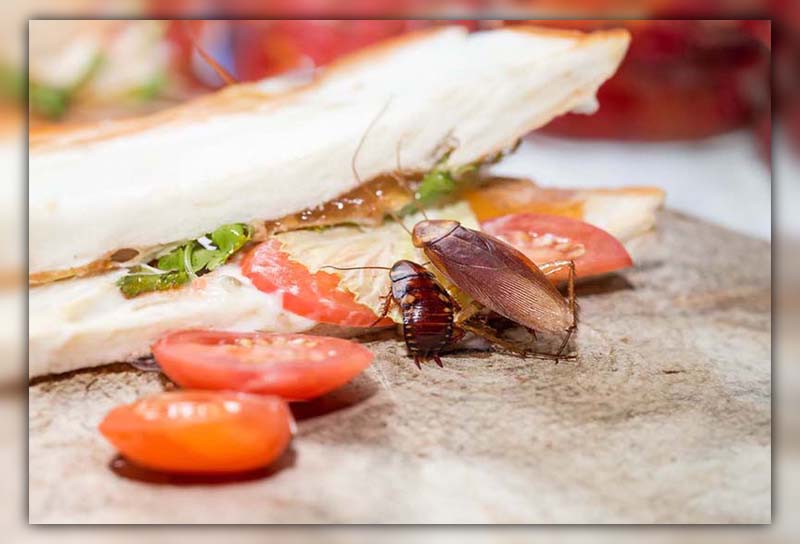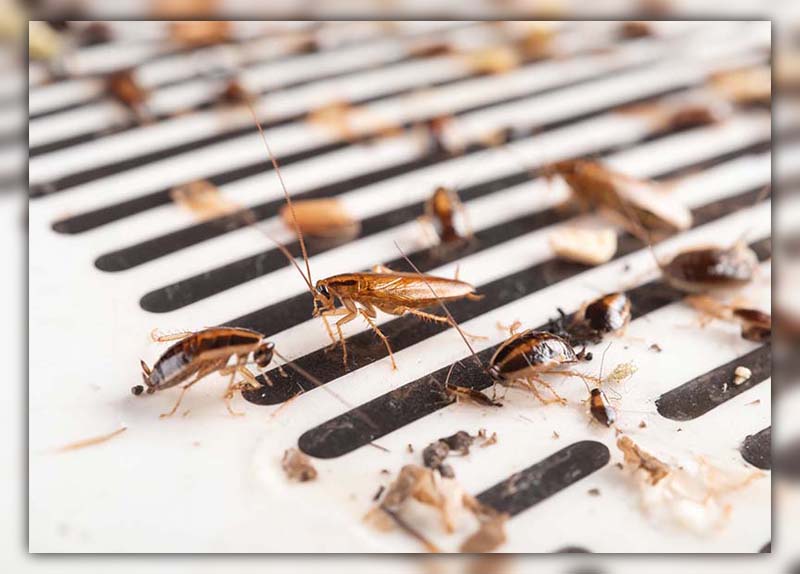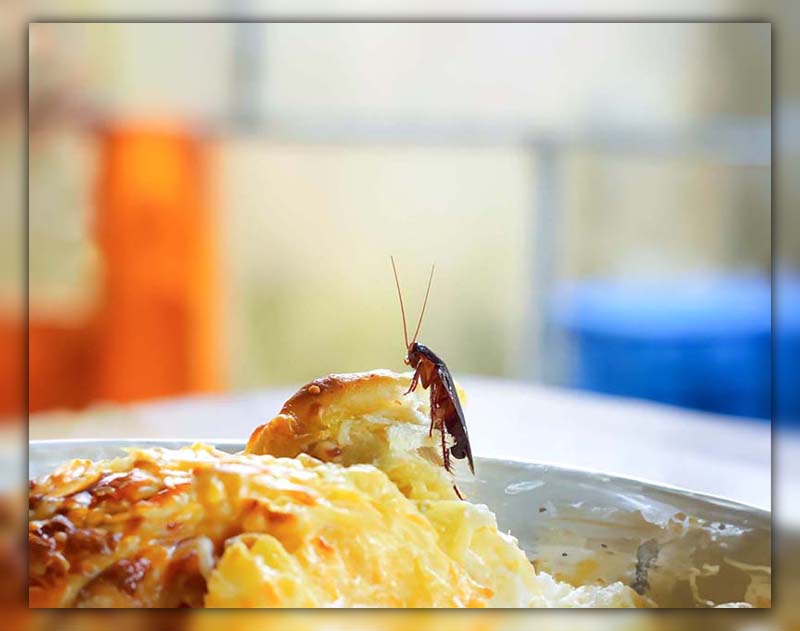While they may be out of sight, the effects of their trespasses aren’t always out of mind.
Unmasking “Cockroach food poisoning symptoms” helps us guard against the subtle threats these critters pose to our wellbeing.
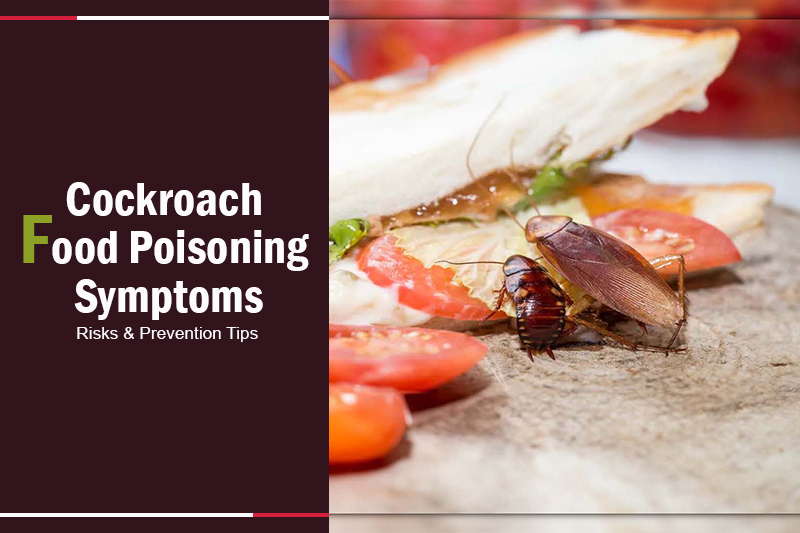
Cockroach food poisoning symptoms
Food poisoning is a prevalent health issue, often resulting from the ingestion of bacteria-laden food.
Cockroaches are notorious carriers of harmful bacteria like salmonella and E-Coli, which can contaminate what we eat.
How can one tell if food has been contaminated due to cockroach infestation?
Symptoms of food poisoning can mirror those of stomach infections, making it challenging to differentiate between the two.
>> Read more: What do roaches eat? What Attracts Cockroaches?
Here’s a succinct list of common symptoms linked to cockroach-related food poisoning:
- Stomach cramps and abdominal pain
- Feeling nauseous, often followed by vomiting
- Frequent diarrhea
- Signs of dehydration
- Overwhelming fatigue and weakness
- Persistent headaches
- Elevated body temperature or fever
In some instances, people might also notice:
- Blood in urine accompanied by pain
- Excessive dryness in the mouth
- Feelings of thirst coupled with dizziness
>> Read more: How to Use Temperature to Kill A Cockroach?
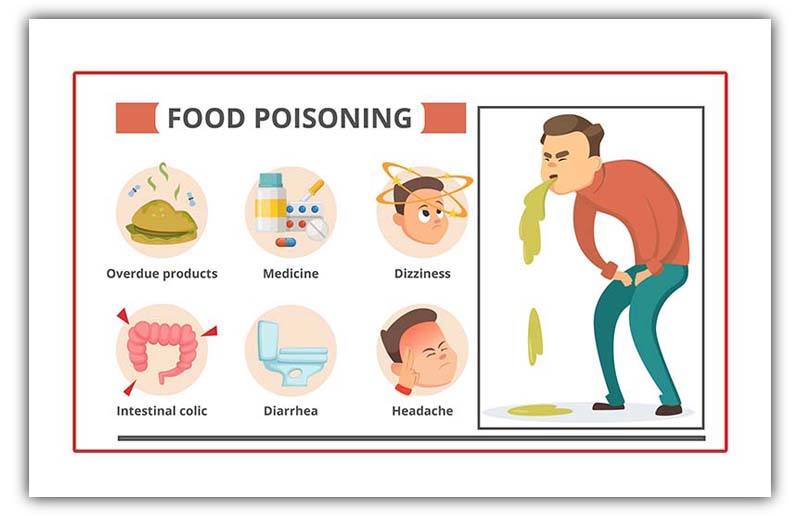
What happens if you eat food a roach crawled on?
If a roach crawls on your food or sneaks into your storage containers, harmful substances might be transferred.
Consequently, if you consume this contaminated food, you might be inadvertently ingesting these unhealthy particles, increasing the risk of foodborne illnesses.
Always prioritize cleanliness and safe food storage to minimize such risks.
As roaches move about, they can come into contact with and even consume a variety of unclean materials, such as:
- Decomposed creatures (animals or insects)
- Feces
- Mold growths
- Shed skin particles
- Spoiled food
This scavenging behavior results in roaches getting covered with:
- Bacteria
- Fungal particles
- Viruses
- Allergens
- Mold spores
Is It Safe to Eat Food That a Cockroach Has Touched?
When a cockroach touches your food, it’s understandable to question its safety for consumption.
Cockroaches are carriers of various bacteria, and while it’s impossible to visually determine the exact types or amounts of bacteria left behind, consuming such food does pose potential risks.
For a person with a robust immune system, the body may be able to combat any introduced bacteria, mold, or allergens without showing any symptoms.
However, that’s not a guaranteed outcome. The safety largely depends on:
- The cleanliness of the roach (which is usually questionable).
- Your body’s ability to ward off potential infections.
- The nature of contaminants (whether harmful or not) present in the food.
In essence, while you might be fine, there’s still a chance of illness. If in doubt, it’s best to play it safe and avoid eating food that a cockroach has touched.
What Happens If You Accidentally Eat Cockroach Poop?
Cockroach droppings carry a mix of bacteria and viruses due to the environments they often inhabit.
Accidentally ate food with cockroach droppings?
Accidentally ingesting roach poop could introduce these pathogens into your system.
While it might not be more hazardous than consuming a contaminated cockroach itself, the potential health risks are still present.
>> Read more: How to clean Cockroach Poop: Pro Tips for a Spotless Home!
What to Do If You Discover a Cockroach in Your Food?
If you come across a cockroach in food, it’s crucial to prioritize your safety:
- Immediately discard any food that might have been in contact with the cockroach. Consuming such food might not lead to immediate sickness, but regularly eating potentially contaminated food increases the risk of illness.
- Check for Infestation Indicators: A cockroach in your food might be a sign of a more significant problem. Indicators of an infestation include:
- Visible cockroach droppings.
- Frequent sightings of roaches, notably during daylight.
- Signs of cockroach activity such as bite marks on food containers or bags.
How to Keep Cockroaches Away from Your Food?
Preventing cockroaches from accessing your food is vital for health and hygiene.
Here are some steps you can take to safeguard your food:
Choose Strong Containers
Cockroach favorite food often includes anything they can access.
Cockroaches possess the ability to gnaw through plastic bags and lightweight containers.
If you detect any signs of cockroach interference with your storage items, it’s essential to discard them.
Invest in new containers made of dense plastic or other sturdy materials.
Seal Food Tight
Roaches are adept at navigating through tiny openings.
Ensure that all food is stored in containers with airtight seals to block any access.
An airtight seal also prevents the aroma of your food from attracting nearby cockroaches.
No Food Left Out
While it’s tempting to leave leftovers on the counter for later or for guests, it’s an open invitation to roaches.
Always cover pots or pans left on counters. Any surplus food should either be stored securely or disposed of promptly.
Clean Up Messes
Even if food is safely stored, the surrounding area can still attract roaches if it’s littered with crumbs or spills.
Adopt the practice of promptly cleaning any messes and make it a routine to sanitize your kitchen and dining spaces, especially before bedtime.
This not only eliminates food residues but also reduces food odors, making the environment less enticing to roaches.
Check Your Fridge
The thought is unsettling, but roaches can indeed inhabit refrigerators.
Regularly inspect your fridge for any signs of roaches.
Keeping the interior of your refrigerator tidy by wiping spills and removing outdated food reduces the chance for roaches to thrive and access your food.
Conclusion
Awareness is our best defense against the dangers of “Cockroach food poisoning symptoms.”
The health risks posed by these pests underline the importance of maintaining cleanliness. Encountered a cockroach dilemma?
Share your experience with us and explore more vital insights on Pestweek.

Calina Mabel has over 15 years of experience in the field of journalism and communications. Currently, Calina Mabel is the Content Writer for categories such as Cockroach, Ants, Bed Bugs, Mosquito, Rodent, Termite, and Flies on Pestweek.com. She aims to build content for these categories with a focus on providing valuable and accessible information to readers, in order to create the world’s largest knowledge community about Pests.
All content written by Calina Mabel has been reviewed by Emily Carter.


